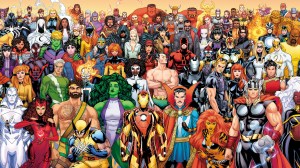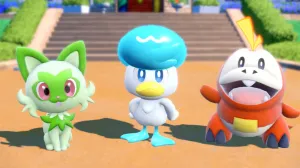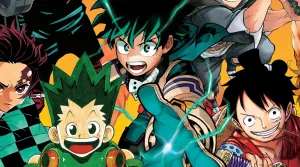One of the last major narratives set within the world of Alien was Alien: Covenant back in 2017, which came from the director of the original film, Ridley Scott. Now that Disney has acquired the rights to the franchise, fans have been hoping for new stories set within that world, and while a variety of smaller publishers have released Alien comics, the series’ return in the pages of a Marvel Comics title had anticipation high for what it could mean for the mythos. While the second edition of Alien #1 from Marvel is far from exceptional, it does get readers off to a steady start, with its future potentially leaving the opportunity to deliver the sci-fi storyline that fans so desperately deserve.
Videos by ComicBook.com
Set a hundred years after the events of the original Alien, a nuclear tragedy is putting the future of humanity at risk, as the fallout of a disaster prevents humans from saving themselves. A group of synthetic beings is approached by the military to help humanity, but given that the humans themselves are what drove the group into hiding in the first place, they must decide between risking their futures or saving their creators.
One of the biggest challenges with the Alien franchise is that, despite the implication of the name, there’s a lot more to what makes a successful narrative than most creators realize. Take, for example, how series co-creator Scott delivered the prequel Prometheus in 2012, which was a financial disappointment. That film’s follow-up, Covenant, brought the iconic xenomorph back to prominence, yet it still failed to win over audiences. If even Scott has struggled with finding the magical alchemy that results in a successful Alien story, it explains why so many other storytellers have faced challenges in the franchise. However, this debut issue of Alien could be setting the stage for the necessary formula for the franchise’s future.
A significant portion of this comic sees writer Phillip Kennedy Johnson delivering nonsensical and convoluted expository information, as the futuristic nature of the concept means we can’t entirely be thrown into an all-new story. Even the opening prelude, which lays out the timeline of the franchise, is multiple paragraphs, inundating the reader with information in a tiresome way. Various corporations and settlements and systems that we are largely unaware of are discussed, making it easy for eyes to gloss over, before the actual hook of the narrative is revealed.
Dating back to the debut film, the relationship between synths and humans is just an integral to the series’ success as the monstrous xenomorphs, with that push and pull of tension igniting so many challenges for storytellers. In the first film, the synthetic Ash became an unexpected and deadly threat, while Aliens flipped the script to see the synth Bishop overcoming preconceived notions and proving himself as an ally. While we might have to suffer through cumbersome exposition, the final pages does see the hook of the series becoming clear, as the synths could completely be integrated into humanity or find themselves once again being exploited. In fact, there’s quite little in this debut issue that ties into the xenomorphs, with only one small tease offering a glimpse of the creatures’ significance.
Despite the majority of the issue being overwhelming, the final pages do help bring clarity to the premise which brings with it the potential of an exciting storyline going forward. Of course, this also means Johnson has the unenviable task of telling a story that doesn’t rely too much on the xenomorphs and turn the entire project into yet another redundant game of cat and mouse.
With the change in location from the dank and dismal catacombs of spaceships or ruined colonies, the illustrations from Julius Ohta and colors from Yen Nitro make the book look unique, as we have rarely seen lush landscapes in live-action takes on the material. Given that the creatures themselves are quite dark, they’re known to blend into the shadows, so with this first issue only briefly touching upon them, there’s no requirement of shrouding the book in muddy darkness. The nature of the premise also means that it’s likely only a matter of time before the synths immerse themselves in more recognizable surroundings full of greys and browns and ambiguous tech; it at least has us excited for how these artistic sensibilities will tie into future issues in which chaos and carnage are fully embraced.
Alien #1 is taking its time with its narrative, seemingly understanding that the inclusion of the more memorable elements of the franchise requires appropriate timing. After all, a majority of the original film was absent of the hulking beast, and even after its appearance, it stuck to the shadows. Despite this debut issue not totally winning over readers, just the fact that it isn’t jumping the gun and shows restraint with its recognizable IP makes it more promising than other attempts to explore the mythos. Given how many times we’ve been given underwhelming and undercooked comics in the Alien franchise, we’ll absolutely settle for a slow start over a redundant setup.
Published by Marvel Comics
On September 7, 2022
Written by Phillip Kennedy Johnson
Art by Julius Ohta
Colors by Yen Nitro
Letters by VC’s Clayton Cowles
Cover by Björn Barends








